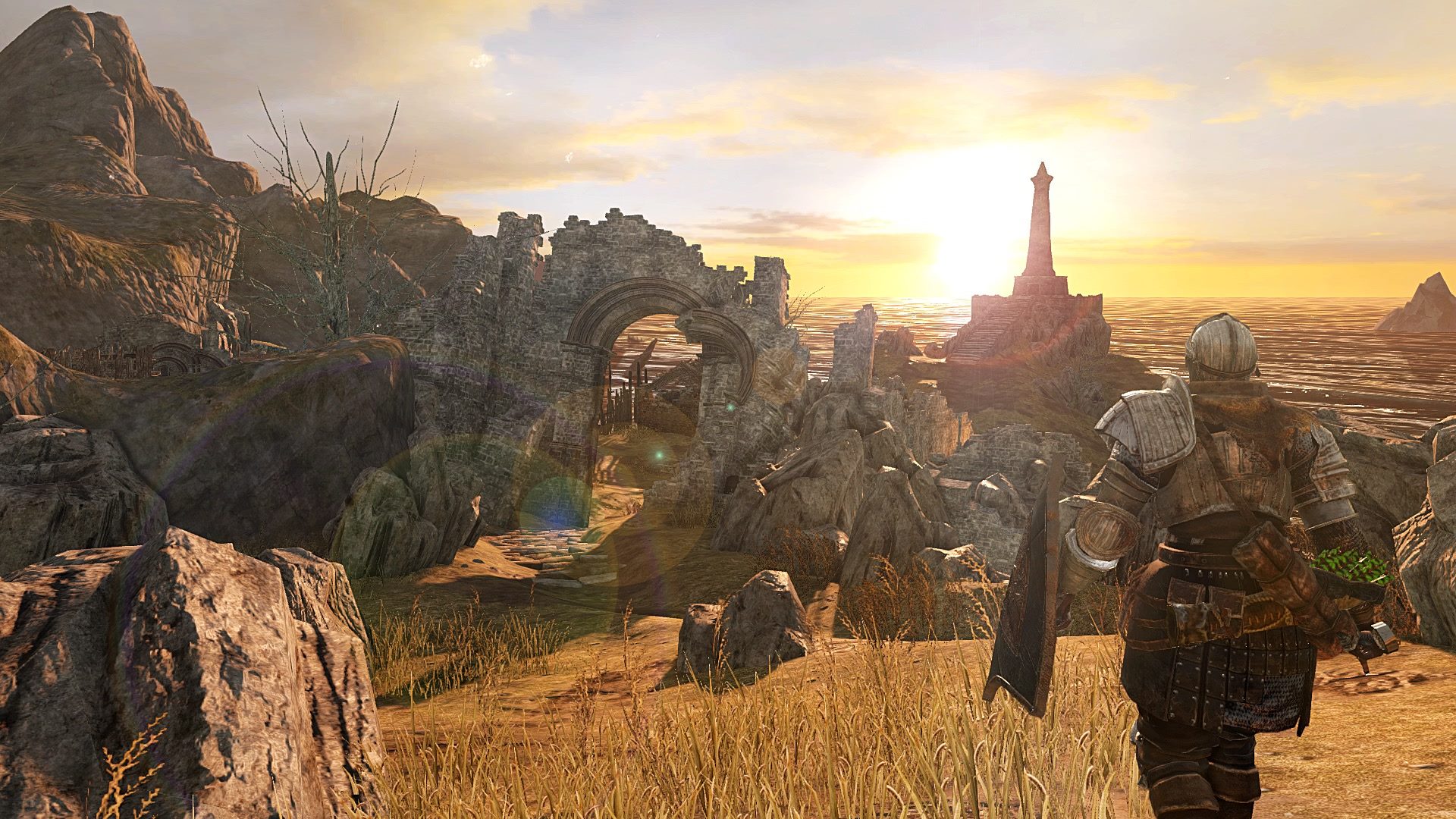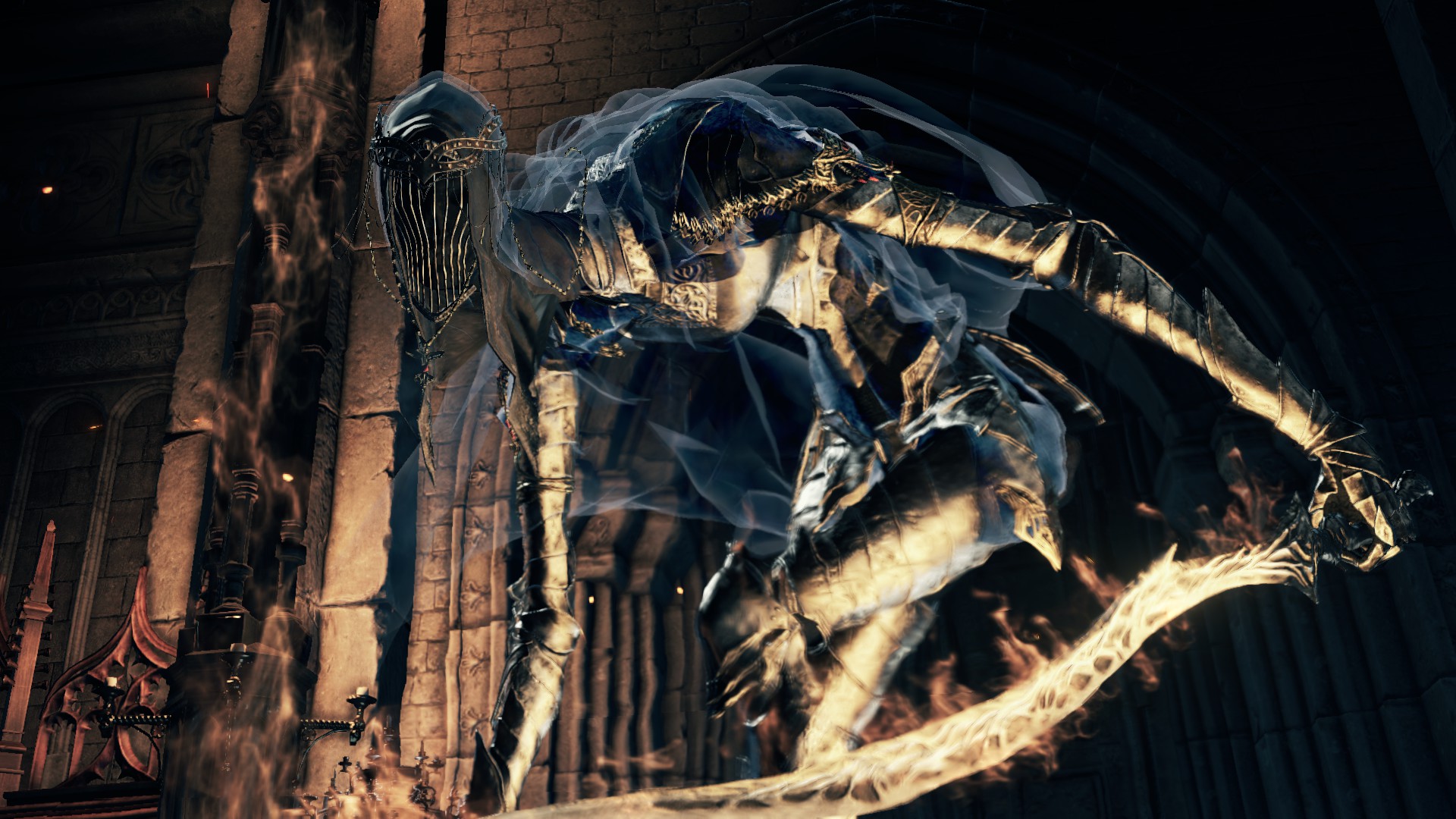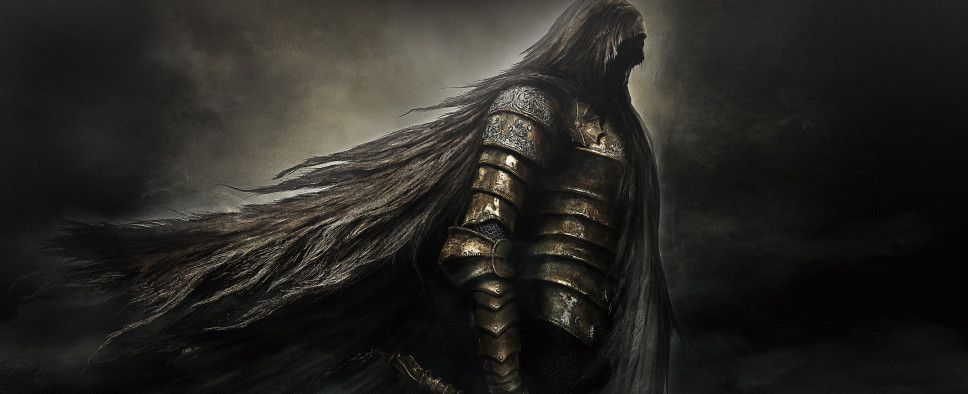 Dark Souls II is an action-RPG released on the 11th March 2014, developed by From Software and published by Bandai Namco Games. It is the third instalment in the Souls games, following the first, Demon Souls and the second, Dark Souls. The original Dark Souls II was made for the PlayStation 3, Xbox 360 and Microsoft Windows. However, today I will review a variant of this game released in April of 2015 known as Dark Souls II: Scholar of the First Sin, a remastered version made for next gen consoles that included the original game with a few minor changes, and all its downloadable content.
Dark Souls II is an action-RPG released on the 11th March 2014, developed by From Software and published by Bandai Namco Games. It is the third instalment in the Souls games, following the first, Demon Souls and the second, Dark Souls. The original Dark Souls II was made for the PlayStation 3, Xbox 360 and Microsoft Windows. However, today I will review a variant of this game released in April of 2015 known as Dark Souls II: Scholar of the First Sin, a remastered version made for next gen consoles that included the original game with a few minor changes, and all its downloadable content.
-Gameplay-
The Souls Games, as they’re known, all have similar mechanics and are known for their difficulty. The player’s journey throughout the game world is filled with unforgiving and relentless enemies, bosses, puzzles, areas, and traps, all of which can easily kill you and are often hard to beat. Playing badly is met with severe punishment from the game, where you can lose hours of progress and hard work just by slipping up once. Enemies respawn once you leave the area, and only stop respawning if you kill them dozens upon dozens of times.
Limited opportunities for recovery of health mean you need to play with care, coordination and skill in order to lose as little health as possible. The less health you have, the more vulnerable you become. Every time you do die, your maximum health decreases, meaning that dying multiple times only makes the game harder. The only way to reverse this effect is by consuming rare, limited items you find throughout the game. You can recover a portion of your health using replenishable flasks known as ‘Estus Flasks’, a small amount gradually using ‘Lifegems’, or all of your health using a rare item called a ‘Human Effigy’.
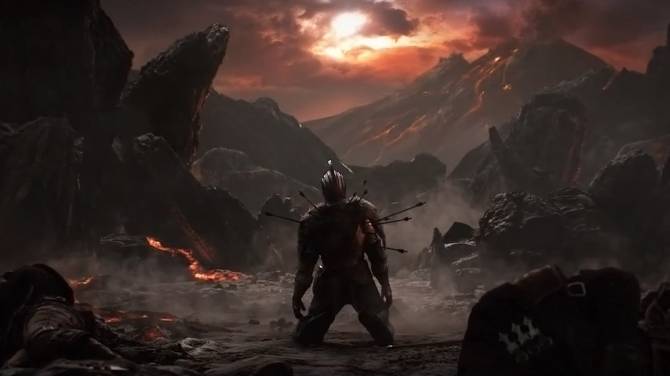
The game uses a currency known as souls, which you collect by defeating enemies. The more difficult the enemy, the more souls the player receives. Souls are used to both level up stats, such as vigour, endurance and vitality, and to purchase equipment, weapons and other items from the multiple NPC vendors you find in the game. Upon your character’s death, all the souls you are holding at the time are dropped where you died. You can retrieve these lost souls if you return to that spot. However, if you die again before you can get them, then you lose them forever.
Probably the games’ most iconic features are its save spots known as bonfires. These bonfires can be recognised by the coiled sword planted in a flame, and are located at specific places throughout an area. They allow you to rest and relax from the dangerous enemies, recover all your lost health and Estus, and teleport to any other bonfires you have visited while playing through the game. They can only be activated by going up to them and physically lighting them, and you can only rest at them if there are no immediate threats nearby.
Combat in Dark Souls is unique. Not only does every different type of enemy behave differently, so does every single weapon and spell. I have only used melee weapons, sometimes accompanied by a shield, so I will only be discussing my experience using this playstyle.
For me, the controls are fine and aren’t too complicated. You find markings on the floor at the beginning of the game that tell you what button does what. It’s how you use the controls that matter. A major part of the combat system revolves around your ability to read an enemy’s movements to judge and prepare for an attack. This is usually followed by dodging the attack, and then counterattacking. Timing, coordination and reading your enemy is everything. If you screw up, you’ll most likely end up losing a sizable chunk of health and possibly dying.. The thing is, that’s just how I play. I taught myself, through trial and error, how to face an enemy. The game didn’t teach me that. It just gave me the mechanics to let me teach myself. Another person could come up with a completely different playstyle that works for them, and it may be just as effective. That’s one of the great things about the game. When you beat an enemy or finally defeat that boss after countless times, the sense of accomplishment and relief you feel are astounding. It feels really good to know that it was completely up to your ability and skill as the player that you won after so many defeats. I’ll talk more about how that is a major reason why the game is held to such a high standard. For this and gameplay, both 9/10.
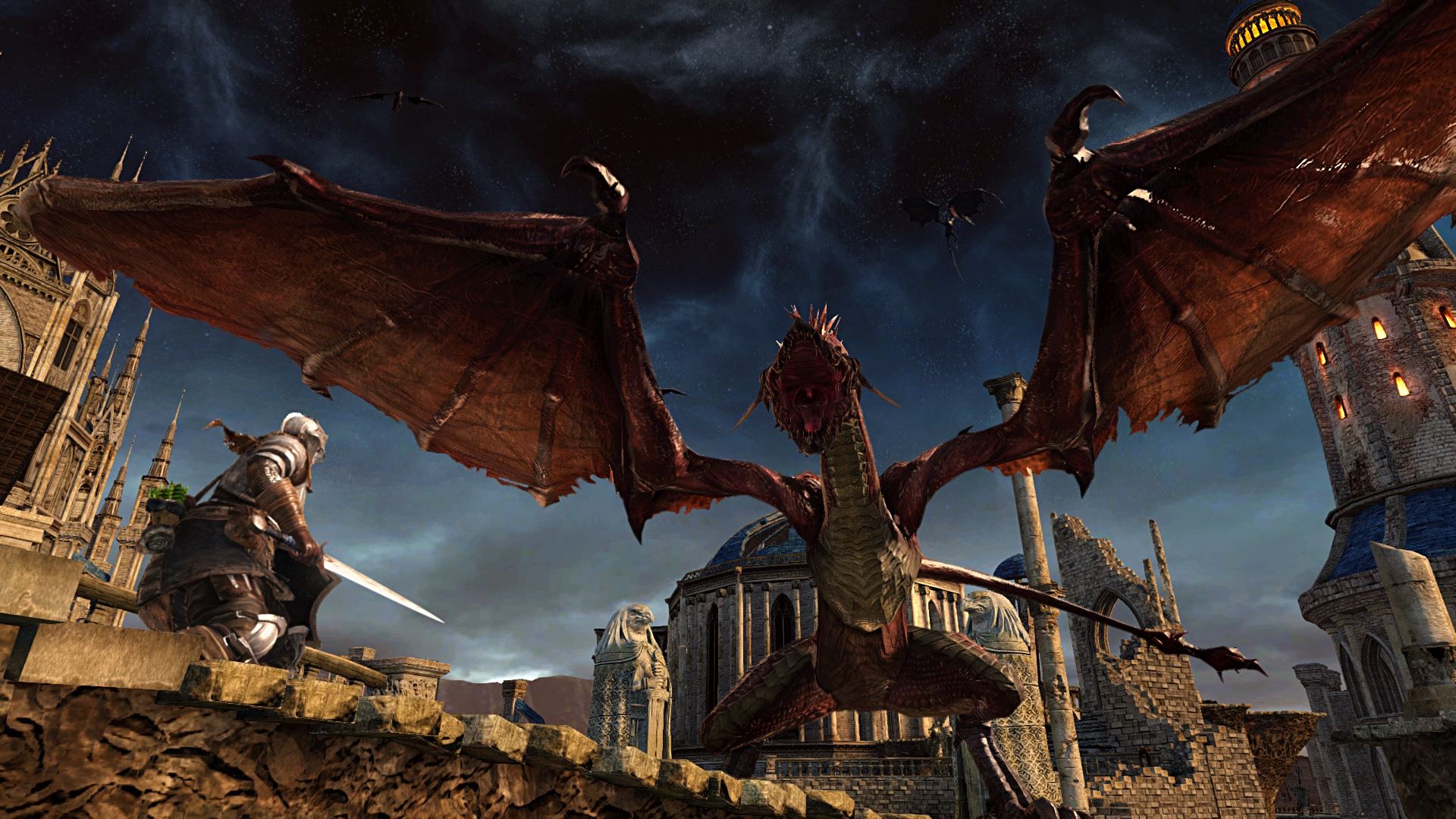
-Fun Factor-
Ask any Dark Souls enthusiast, and they will tell you that they hold a sort of “love-hate” relationship with it. As stated, the game is known for being difficult. Right off the bat, it doesn’t let you know what the deal is. It gives you a brief story introduction, tells you the basic controls, and then sends you on your way. Yes, that is a pretty mainstream thing you see in most games. However, it’s after this moment that the game becomes unique.
Most games give you the controls, give you a waypoint so you know where to go, and continue just guiding you along throughout the entire game, holding your hand like you’re a baby. In Dark Souls, they just give you the controls. That’s it. No mention on what to do, where to go, how to progress. When I first started playing, it was such an unusual experience playing a game that truly let you lead the way. Some people aren’t a fan of the way Souls games handle this. And I’ll admit, I too was frustrated in the beginning because I didn’t know what to do. I was constantly asking myself questions because it was up to me and me alone to answer them. But I learnt to know that that’s what makes Dark Souls so good. Yes, most situations throughout Dark Souls are challenging and confusing because it isn’t always clear cut what you need to do or what the next step is. Yet as you play it and progress past those challenges, you build a sense of confidence within yourself. When faced with a new, different enemy or area or puzzle, you learn to trust in your ability to overcome it, because there have been so many situations where you felt the same way, yet still managed to struggle past them.
My point is, although the game is very frustrating and very challenging, it is also so very rewarding, and that is where the fun is found. And for that, I would have to give the fun factor a 9/10.
-Replayability-
Replayabilty is a core part of the Dark Souls experience, and revolves around you replaying the game on a game mode known as New Game Plus. Starting with the initial replay of NG+, it then goes on to NG++ after that, and so on all the way up to NG+7. Only after that will you have truly beat the game in the eyes of many Souls players. With each replay, you retain their levels, souls and most items. However, all enemies and bosses get harder per replay, dealing more damage and having increased health with every playthrough. This means that even if you know and understand how to deal with every enemy and boss in the game, they will always stay a difficult and rewarding challenge to beat. Replayabilty stands at 8/10
-Sound/Music-
The music score in Dark Souls is brilliant. The way they use the musical orchestra to compliment the various areas and add the mystery and unknowing that comes with finding one of these areas or facing a boss is unlike any other. Here’s a video made by Game Theory that discusses the music of Dark Souls and how it influences the battles against the bosses in the game. It’s really interesting, and I thought it did an excellent job of showing just how much effort the creators of the game put into its music. Although I should warn you, it’s quite cringey to begin with. Also, this video is talking about Dark Souls III, but it still is an accurate portrayal of the type of music in Dark Souls II.
The in-game sounds are also great. Swinging an ultra-greatsword around and smashing it through an enemy, and hearing it crush into the ground, is really satisfying. The enemies sound like they should too. None of them speak, they only moan and groan quietly, as if in constant pain. The voice acting of the NPCs is good as well. They do a good job of putting on an Old English accent, saying words similar to Shakespeare’s or something. So overall, I’d put the sound/music at an 8/10.
All in all, Dark Souls II, like all the others, is an astounding game. It is one of those games that doesn’t try to be perfect, although many argue that it is. It just tries to be provide an experience that most gamers have never had before, and to push those boundaries. I never realised just how good a game could be until I played Dark Souls, and let me tell you that no other game has been anything like it. It will always have a lasting effect on me and many other players. It is challenging, interesting, unique and rewarding, and for that and much more I am going to have to give it a 9.5/10. I would place it as a 10, but damn can Dark Souls be frustrating sometimes.
By Jackson Alexanderson

